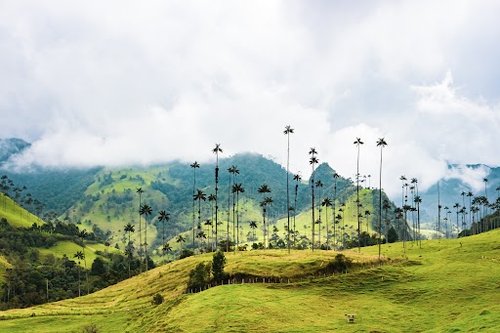
How Coffee Impacts Colombian Culture
Colombia is known around the world for its excellent coffee. From mass production to the most specialty coffee in the market, Colombia has a foot in nearly every sector of coffee production. But the impact of Colombian coffee starts long before the first sip of your morning cup of joe. Coffee from Colombia starts in the farms of driven locals who are committed to producing some of the most well-loved coffee in the world.
Coffee’s Impact on Colombian Culture
The people of Colombia are no strangers to hard work. They are known for being driven and dedicated people, mixed with an energetic and enthusiastic flair in their communal way of life. It’s no surprise these people are so dedicated to the hard work it takes to grow green coffee with excellence.
Colombia has dozens of microclimates and hundreds of independent farmers that grow coffee in smaller estates to export and share with the world. The coffee farmers in Colombia push each other to grow some of the best specialty coffee in the world. There is a culture of friendly but intense competition surrounding the exportation, based on who can grow the most unique-tasting coffee seeds. The more unique and higher-grade Colombian coffee is, the more inclined people around the world may be inclined to buy that coffee. This spirited competition enhances the culture of Colombian coffee farmers through their hard work and dedication to their trade.
The persona of “Juan Valdez” is famous around the world as the embodiment of Colombian coffee and the farmers who grow it. Juan was created in 1958 for a campaign to promote single-origin Colombian coffee, and it worked! Every so often, The Colombian Federation of Coffee Growers selects a new ambassador who is a coffee farmer to represent Valdez’s persona. Think of it as the Gerber Baby for Colombian coffee! Every Colombian is familiar with the great Juan Valdez and his donkey, Conchita, taking coffee all over Colombia.
Coffee is essential to the livelihood of the farmers and the economy of Colombia. It is also simply a part of any Colombian’s way of life. As opposed to the US, coffee in Colombia is not primarily consumed for the practical purpose of waking up in the morning. Rather, it is used for communing with family, friends, or others in the community. Any time there is a reason to socialize, coffee is always in the mix.
The most traditional and popular Colombian drink is called tinto. Tinto is a simple black cup of coffee served in a 4oz to 10oz cup, depending on the region. Because coffee is one of Colombia’s top exports, tinto is traditionally made from lower-grade coffee. But this does not stop the Colombian people from enjoying it. There are also specialty coffee shops that serve high-grade specialty coffee. Even still, the most traditional and often preferred is tinto.
Take our coffee quiz to find out if Colombia is your origin of choice!
Our Partnership with Sustainable Coffee Producers in Colombia
Baba Java Coffee has the privilege of partnering with a green coffee producer from Colombia called Forest Coffee, which owns several farms, overseeing and fine-tuning operations from planting to processing. They have done incredible work in the regions and continue to contribute greatly to the well-being of the surrounding communities. Furthermore, they have many experimental coffee processes which provide a unique flavor profile to the cup.
We met Santiago and Forest Coffee in Boston at the Specialty Coffee Association (SCA) expo in 2022. We quickly bonded over a shared love of green coffee. Later in the year, our Head of International Operations (Joshua Parvin), our President (Nathan Parvin), and our Social Media and Marketing Coordinator (Rachel Parvin) visited Santiago and Forest Coffee at their lab in Bogota, Colombia! We were able to interview their head of coffee for North America, Santiago Carvajal Posada, to get his take on Colombian coffee culture.
Learn about how coffee impacts other cultures.
Santiago’s Take on Colombian Coffee Culture
Santiago explained that Forest Coffee is in the coffee business to support coffee farmers and their families through sustainable practices. The sons and daughters of the coffee farmers are no longer going into the city to study and remain there. Instead, they are coming back to their cities and farms in order to use their education to grow their family businesses. The owners of Forest Coffee are committed to helping keep the younger generation inspired and continue in their family businesses for generations.
Santiago also explained that the production processes and flavors of Colombian coffee continue to change. In the beginning, the coffee was known as being sweet and smooth. Now, because of the “berraquera Colombiana” (boldness of Colombians), the younger generation is introducing more variety to coffee through the multitude of micro-lots and different climates that Colombia has to offer.
Coffee has impacted Colombian culture in more ways than one. Because of sustainable coffee producers like Forest Coffee, generations will continue to grow and build off of the farms and processes that have been established in Colombia for many years. The new coffee innovations will reach coffee shops all over the world. Hopefully, this excellent coffee will continue to spread the Colombian values of community and creativity, knowing that this coffee started from a coffee farm in Colombia.
